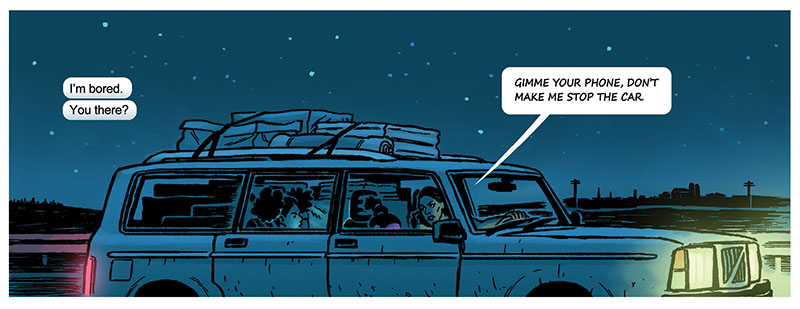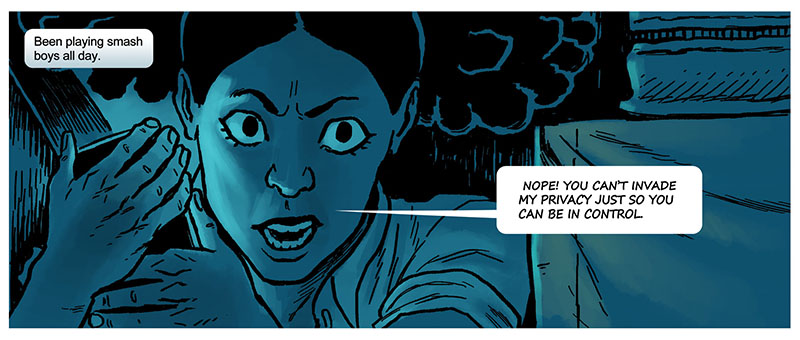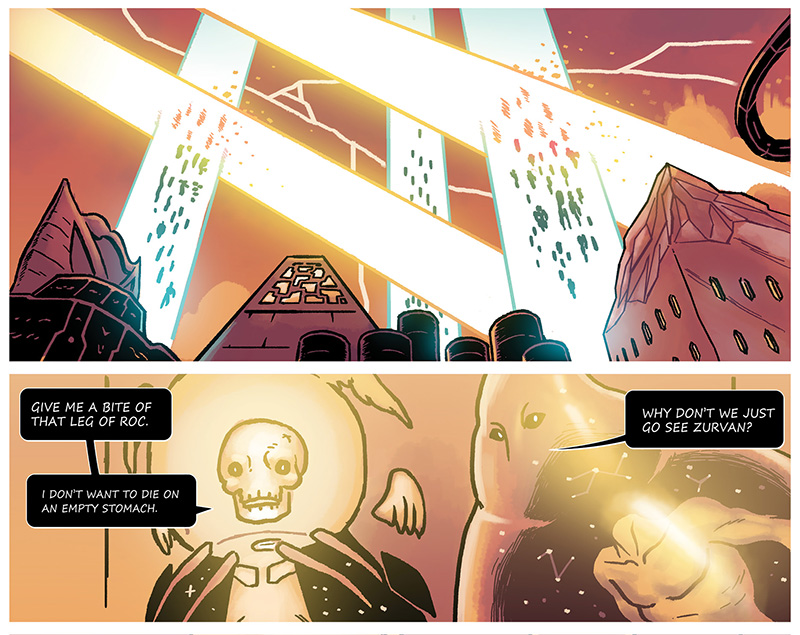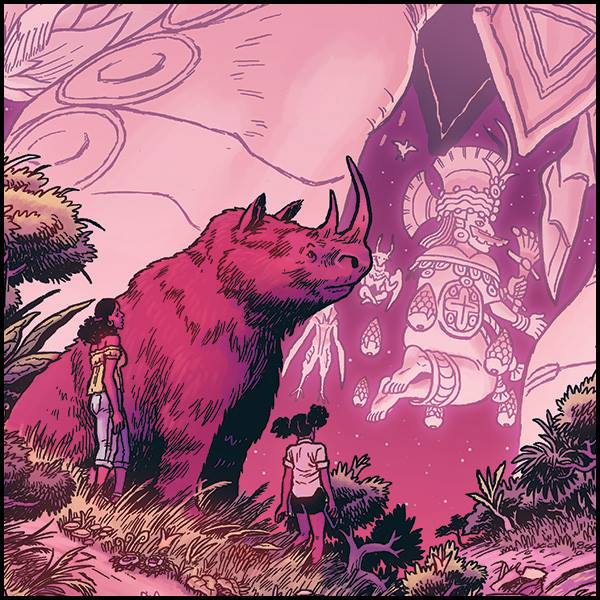Ulises Farinas and Daniel Irizarri took time out of their busy schedule (hard at work finishing up CLOUDIA AND REX #3) to answer some questions for the July Lion Forge Forecast. Check out the interview here!

Cloudia and Rex has the fingerprints of a superhero story—young characters coming into incredible power from fantastic sources, dropped into a big and dangerous adventure at the same time—but it doesn’t look or feel like any other superhero comic. What was your inspiration for this story?
ULISES: I wanted to have a fun adventure. I wanted the characters to look like people I grew up with, to know that life and have a connection to the rest of the world. As a child of immigrants, I feel a kinship to a global society that has moved through different parts of their lives and found new strength in them, and I wanted to explore that with the idea of gods and goddesses from around the world inhabiting this family.
DANIEL: A lot of the visuals for the book developed organically as Ulises and I started discussing what we both wanted to see in a story like this. I think the reason the book feels and looks so differently is that we tried to approach it as honestly as possible. I wanted to give the characters honest emotions of joy, sadness, despair, and frustration, and I feel like a lot of that expressiveness is missing from most superhero work. Another thing is that we wanted to keep everything as grounded as possible so that when it clashed with the fantastic, people would feel the shift along with our characters.
The story features characters drawn from various religions and mythologies from around the world—Thanatos and Hypnos from Greek mythology, Ala the Nigerian Goddess of Fertility, Zurvan a Persian deity, Tohil a Mayan fire deity, etc. What led you to bring these diverse religious figures together into a single realm?
ULISES: I’m a Cuban/Afro-Cuban American, and my ancestry is from Spain, Ireland, China, Africa, and I always feel like when gods are shown in popular media, they are often just the Greek or Egyptian pantheon. I wanted to show a world of beliefs and cultures, all mixing together, having a world and mythos of their own. They call themselves “waveforms” because they all exist on a spectrum of cultures that blend and transform into other mythologies.
DANIEL: In Puerto Rico, we had a rich pre-Columbian Taino culture with its gods, animal spirits, and ceremonies that was all but wiped out through the brutality of colonization. Now all we can do is study the remnants and wonder what that life could have been like, and I think that sparked in me a fascination with old gods and old or forgotten interpretations of nature that were made into deities, and this book was a rare opportunity to work with those ideas before they’re wiped out and consumed by the high waveform.

The lead human characters, specifically Cloudia, her mother, and her sister Rex, are dealing with a recent loss in the family, each in their own way. What were you most interested in exploring with these characters in this situation?
ULISES: My parents are a connection to a life I can barely imagine. I don’t speak Spanish, they do. I’ve grown up privileged, they did not. I am grateful and indebted to them, and I wanted to depict that fear of losing a connection to them, whether in life or in death.
DANIEL: I think what was most interesting to explore was the raw emotionality of it. The loss they suffered leaves them all tender and the emotions heightened. I felt very connected to all the characters, whether I was channeling my sister and her kids while I drew Ginny (Cloudia’s mom), or whether I was channeling all my teen angst from when I was sure my parents just didn’t understand while I drew Cloudia, or whether I was channeling being the youngest in the family seeing your older siblings trying to claim their independence while I was drawing Rex. All of these characters in some way found truth through a facet of my life.
Is this a finite story, or do you see more adventures with these characters in the future?
ULISES: The story never ends, but the moment concludes.
DANIEL: I think what’s great about the story Ulises and Erick crafted is that it’s perfectly complete, but at the same time it remains a well of potential stories that could happen if they were so inclined to tell them. It’s an amazing moment in the lives of these characters.

What are you working on next?
ULISES: Striving to excel in all facets of my life, but in the meantime, working on making sure my Instagram looks dope.
DANIEL: I’m always looking forward to creating my own short sci-fi and fantasy stories so if time allows it, I’ll probably be doing that.
If you could have one god-like power, what would it be?
ULISES: I’d probably want to be an instrument for the wrath of god.
DANIEL: I’d be a bit of a mischief god, I think. Making sure everyone is brought down a peg and able to laugh at themselves once in a while. It might do the world some good.

